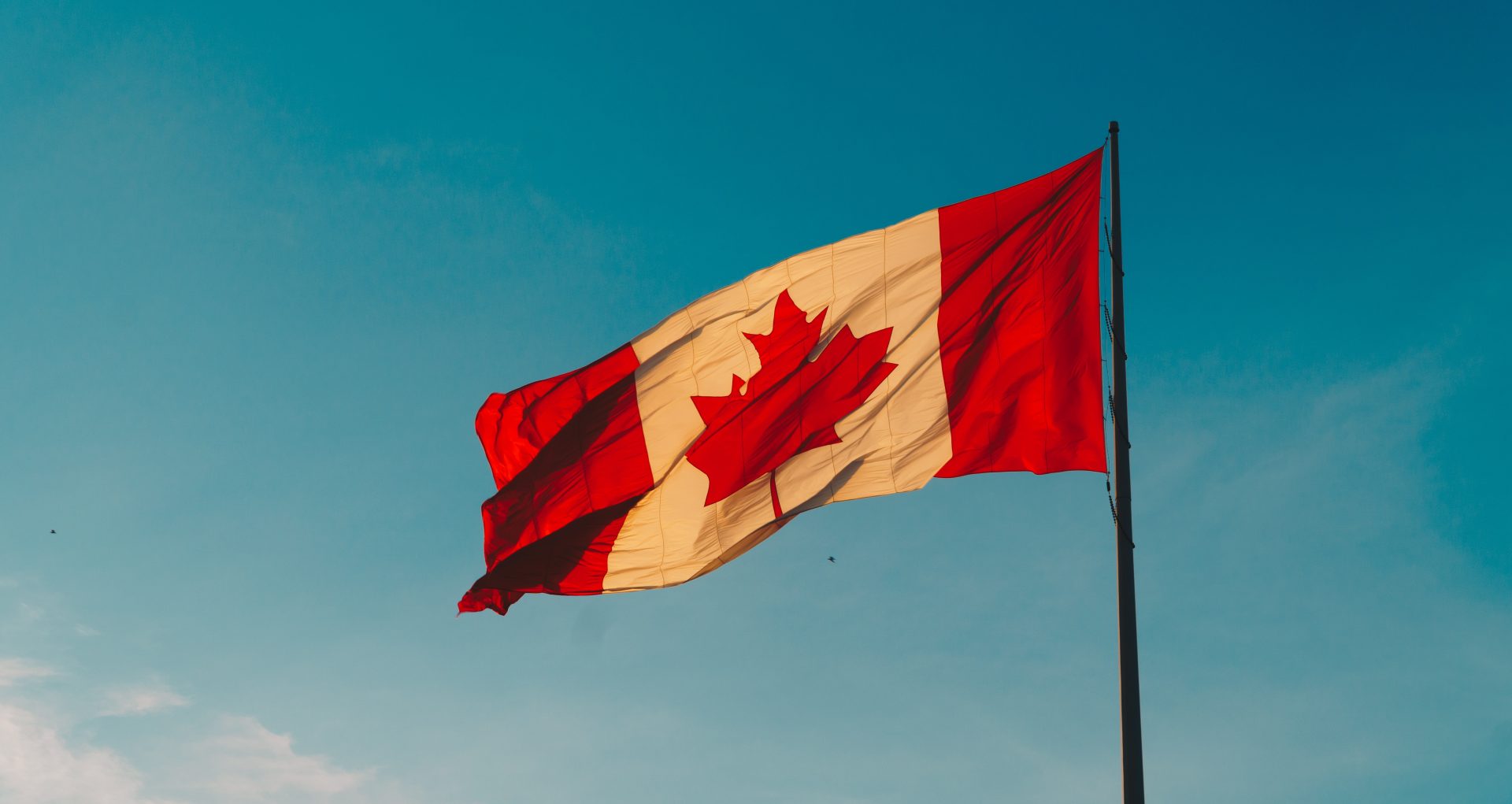Canada’s decision to legalize cannabis has had a profound impact on the country’s weed culture. Gone are the days when cannabis in Canada whispered its presence from the shadows. The 2018 legalization marked not just a legal shift but a cultural revolution. This article digs deep into the remarkable transformation of marijuana from a taboo, underground existence to a celebrated and integral part of mainstream Canadian life.
Join us as we explore the myriad ways in which legalization has reshaped public attitudes, influenced lifestyle choices, and redefined the nation’s relationship with this once-misunderstood plant. From the bustling streets of Toronto to the serene landscapes of British Columbia, witness the green wave that has swept across Canada, altering perceptions, economies, and lifestyles in its wake.
Changing Attitudes Towards Cannabis
Public Perception Before Legalization
Before the legalization of cannabis in Canada, public perception of cannabis was largely negative. Cannabis was commonly associated with criminal activities, addiction, and health risks. Many viewed it as a gateway drug leading to the use of harder substances. Due to its illegal status, those who used cannabis often faced stigmatization and potential legal repercussions.
Shifting Public Opinion
With the introduction of the Cannabis Act in October 2018, the perception of cannabis began to shift dramatically. The law allowed for the legal possession and consumption of cannabis for recreational purposes, with certain restrictions. This change in legislation sparked a conversation surrounding the benefits and potential uses of cannabis, leading to a reevaluation of the drug by the general public.
Impact on Stigma
The legalization of cannabis has significantly reduced the stigma associated with its use. As the weed became more widely accepted, individuals who were once hesitant to openly discuss their cannabis consumption felt more comfortable doing so. This increased acceptance has helped to remove the negative stereotypes surrounding cannabis users and has allowed for open conversations about responsible use and harm reduction.
For me, since legalization, I speak openly about cannabis use with my mother and family, and some of them now use cannabis and CBD for medical purposes.
Emergence of Cannabis as a Lifestyle Choice

Legalization has also paved the way for cannabis to be seen as more than just a recreational substance. It has become a lifestyle choice for many individuals, who embrace the plant for its potential health benefits, its cultural significance, and its ability to enhance experiences such as attending comedy events. Cannabis has found its place in various aspects of life, including social gatherings, wellness routines, and creative pursuits.
Regulation and Access
The Cannabis Act
The Cannabis Act, implemented in Canada in 2018, outlines the legal framework for the production, distribution, sale, and possession of cannabis. It establishes the rules and regulations that govern the cannabis industry and ensures public safety and consumer protection.
Age Restrictions
One of the key aspects of the Cannabis Act is the age restriction for purchasing and consuming cannabis. The legal age for cannabis consumption varies from province to province, ranging from 18 to 21 years old. These age restrictions aim to prevent underage consumption and prioritize the health and well-being of young individuals.
Government-Operated Retail Stores
To ensure the safe and regulated sale of cannabis, many provinces have opted for government-operated retail stores only. These stores provide a controlled environment where consumers can purchase cannabis products legally. This approach allows the government to closely monitor the quality and safety of the products, as well as educate consumers on responsible use.
Online Dispensary Sales
In addition to physical retail stores, online sales have become a popular avenue for purchasing cannabis products. Licensed producers are authorized by the government to cultivate, process, and sell cannabis. Legal online platforms provide consumers with a wide range of choices, allowing them to explore different strains, products, and consumption methods from the comfort of their homes.
Impact on Dispensaries and Black Market
The legalization of cannabis has resulted in a significant impact on both illegal dispensaries and the black market. With the introduction of legal retail outlets, illegal dispensaries have faced increased competition and scrutiny. The availability of legal, regulated products has also diminished the demand for black-market cannabis (as much as 60% to 75%), as consumers now have access to tested and reliable products through legal channels.
Diversification of Products
Introduction of Edibles and Extracts
One of the most notable changes brought about by legalization is the introduction of cannabis-infused edibles and extracts. Prior to legalization, only the flower form of cannabis was legally available for purchase. With the new regulations, consumers can now choose from a variety of edibles, including gummies, beverages, chocolates, and baked goods. Cannabis extracts such as oils, tinctures, shatter, hash, and lice resin have also gained popularity due to their convenience, potency, and ease of use.
Health and Safety Regulations
To ensure the safety and quality of cannabis products, health and safety regulations have been implemented. These regulations cover aspects such as labeling requirements, maximum THC limits, and child-resistant packaging. By establishing these standards, consumers can make informed decisions and have confidence in the consistency and potency of the products they are purchasing.
Emerging Cannabis-infused Products
As the cannabis industry continues to evolve, new and innovative cannabis-infused products are constantly emerging. From beverages to CBD-based skincare products, companies are finding creative ways to incorporate cannabis into various consumer goods. This diversification of products not only caters to different preferences but also expands the potential consumer base for the cannabis industry.
Challenges and Opportunities for the Industry
While the diversification of cannabis products presents exciting opportunities for the industry, it also comes with challenges. Striking a balance between innovation and responsible marketing is crucial to ensure consumer safety. Additionally, the industry must navigate complex regulations and evolving consumer preferences to stay competitive in the market. However, with proper regulation and consumer education, the potential for growth and prosperity in the cannabis industry is vast.
Cannabis Tourism and the Local Economy

The new cannabis farmgate stores are supporting local economies.
Growth of Cannabis Tourism
Legalization has brought about a significant growth in cannabis tourism in Canada. Travelers from around the world are drawn to Canada to experience its legal cannabis market, explore cannabis-friendly destinations, and participate in cannabis-related events. This surge in tourism has created economic opportunities for local businesses and has contributed to the overall growth of the tourism industry in Canada.
Destination Canada: Cannabis-friendly Locations
Several provinces and cities in Canada have actively embraced cannabis tourism by developing cannabis-friendly locations. These destinations offer a wide range of experiences, from cannabis-themed tours and dispensaries to cannabis-friendly accommodation options. Cities such as Vancouver and Toronto have become popular destinations for cannabis enthusiasts, providing a vibrant and inclusive environment for both residents and visitors.
Economic Impact of Legalization
The legalization of cannabis has had a positive economic impact on Canada. The cannabis industry has created jobs and generated revenue through taxes and licensing fees. Additionally, legalization has led to the growth of ancillary industries such as marketing, tourism, and technology, creating even more economic opportunities. The increased economic activity benefits local communities and contributes to the overall prosperity of the country.
Job Creation and Revenue Generation
The legalization of cannabis has opened up a slew of job opportunities across various sectors. From cultivation to retail, there is a demand for skilled professionals who understand the intricacies of the cannabis industry. Additionally, the legal sale and taxation of cannabis products contribute to the generation of revenue for the government, which can be invested in public services and infrastructure development.

Impact on the Criminal Justice System
Decriminalization versus Legalization
The move towards the legalization of cannabis in Canada represents a shift away from the previous approach of criminalization and towards a more regulated and controlled market. Decriminalization would have meant reducing or removing criminal penalties for possession of small amounts of cannabis, while legalization allows for a legal and regulated market for both medical and recreational use. By legalizing cannabis, Canada has aimed to address public health and safety concerns while reducing the burden on the criminal justice system.
Reduced Police Resources on Cannabis Offences
The legalization of cannabis has resulted in a significant reduction in the resources allocated by law enforcement agencies towards cannabis-related offences. Prior to legalization, police efforts were focused on enforcing cannabis laws and prosecuting offenders. With the legal market in place, the need for such enforcement has diminished, allowing police resources to be redirected to more pressing matters.
Expungement of Past Cannabis Convictions
In an effort to rectify the consequences of previous cannabis convictions, Canadian authorities have taken steps towards expungement. Expungement refers to erasing criminal records related to cannabis offences, enabling individuals with past convictions to move forward without the stigma associated with a criminal record. This process has been instrumental in addressing the historical injustices caused by cannabis criminalization.
Efforts Towards Restorative Justice
Legalization has provided an opportunity for restorative justice in the realm of cannabis offences. Instead of punitive measures, restorative justice focuses on repairing harm caused by the criminal act. This approach emphasizes dialogue and reconciliation between offenders and affected parties, aiming to restore relationships and promote healing within the community.
Cannabis and Health
Integration into Mainstream Healthcare
The integration of cannabis into mainstream healthcare has been a significant development resulting from legalization. Healthcare professionals are increasingly recognizing the potential therapeutic benefits of cannabis and exploring its potential applications in various medical conditions. This integration allows for more informed discussions between patients and their healthcare providers and paves the way for further research and clinical trials.
Research and Clinical Trials
Legalization has created opportunities for increased research and clinical trials on cannabis. This research aims to further understand the potential medical benefits and risks associated with cannabis use. By facilitating scientific exploration, legalization has the potential to uncover new treatment options and expand the knowledge base surrounding the therapeutic properties of cannabis.
Emerging Health Concerns and Benefits
As cannabis becomes more widely accepted and regulated, there are ongoing discussions about the potential health risks and benefits associated with its use. While there is evidence to suggest that cannabis may have therapeutic properties, such as pain relief and reducing nausea, and anxiety, concerns also exist regarding potential negative effects on mental health and cognitive function. Continued research and education are crucial in understanding and mitigating these potential risks while maximizing the potential benefits of cannabis.

Cultural Shift and Counter-Culture
Evolution of Weed Culture
The legalization of cannabis in Canada has brought about a significant evolution in weed culture. What was once considered a countercultural activity has become more mainstream and widely accepted. Cannabis consumption is no longer limited to specific subcultures but has grown to encompass a diverse range of individuals from various backgrounds and age groups.
Mainstream Acceptance
The increasing acceptance of cannabis in mainstream society is evident in the shifting attitudes and public discourse surrounding the drug. Cannabis consumption is now openly discussed and depicted in popular culture, and its presence in social settings and events is more prevalent. Mainstream acceptance has helped break down stereotypes and promote a more inclusive and tolerant society.
Cannabis in Arts and Entertainment
Legalization has had a profound influence on the arts and entertainment industry in Canada. Cannabis-inspired artwork, music, literature, and films have gained popularity and recognition. Artists and entertainers are exploring cannabis themes and incorporating them into their creative expressions, contributing to the normalization and acceptance of cannabis culture.
Impact on Counter-Culture Movements
The legalization of cannabis has had both positive and negative impacts on counter-culture movements. While some argue that legalization has co-opted and commercialized the spirit of counterculture, others believe that it has provided a platform for these movements to advocate for social justice, responsible use, and community building. The relationship between the cannabis industry and counterculture remains complex and continues to evolve.
The Role of Education
Public Education Campaigns on Cannabis
Education plays a crucial role in ensuring responsible cannabis use and addressing public health concerns. Public education campaigns have been implemented to provide accurate and evidence-based information about cannabis, its effects, and safe consumption practices. These campaigns aim to dispel myths, reduce stigma, and promote informed decision-making among the general population.
Schools and Cannabis
The legalization of cannabis has prompted discussions about cannabis education in schools. Many educational institutions have incorporated curriculum modules on cannabis, focusing on topics such as the risks and benefits of cannabis use, responsible consumption, and harm reduction strategies. By providing comprehensive education, schools can equip students with the knowledge and skills necessary to make informed choices regarding cannabis.
Workplace Policies and Education
With the legal status of cannabis, workplaces have had to adapt their policies and procedures to ensure a safe and productive environment. Employers are implementing frameworks that address impairment, intoxication, and responsible cannabis use. Additionally, workplace education programs are being developed to raise awareness and provide guidance to employees on the potential effects of cannabis and how to navigate its use within the workplace.
Challenges and Importance of Education
While education is key to ensuring safe and responsible cannabis use, there are challenges that need to be addressed. Misinformation, lack of standardized educational resources, and evolving cannabis products pose challenges in providing accurate and up-to-date information. It is crucial to invest in ongoing research, education, and public awareness campaigns to address these challenges and promote a well-informed society.
Public Health and Safety Concerns
Impaired Driving and Road Safety
One of the significant public health concerns associated with cannabis legalization is impaired driving. Cannabis use can impair motor skills, reaction time, and judgment, increasing the risk of accidents on the road. Efforts have been made to raise awareness about the risks of driving under the influence of cannabis and to develop effective roadside testing methods to detect impairment.
Regulating Consumption in Public Spaces
The legalization of cannabis in Canada has raised questions about regulating consumption in public spaces. While cannabis use is legal in private residences and designated areas, it is crucial to establish clear guidelines to ensure public safety and minimize potential discomfort for non-users. Local regulations and bylaws have been developed to address this issue and strike a balance between personal freedom and public concerns.
Educating Users about Safe Consumption
Education on safe cannabis consumption practices is essential to minimize potential health risks. It is crucial for users to understand dosage, potency, and consumption methods to ensure responsible use. Public health campaigns and educational resources are available to inform users about safe consumption practices and to encourage moderation and responsible decision-making.
Addressing Potential Health Risks
Legalization has prompted discussions about potential health risks associated with cannabis use, particularly in vulnerable populations such as youth and pregnant individuals. Research is ongoing to understand the long-term effects of cannabis use on physical and mental health. Health professionals, policymakers, and educators must work together to address these concerns, inform the public, and develop evidence-based guidelines to minimize potential risks.
International Perspectives and Impacts
Impact on Global Drug Policy
Canada’s legalization of cannabis has had a significant impact on global drug policy discussions. The move towards legalization has prompted other countries to reevaluate their own drug policies regarding cannabis. Canada’s approach has been watched closely by other nations, who are considering similar measures to regulate cannabis and address public health concerns within their borders.
Comparisons with Other Legal Jurisdictions
The legalization of cannabis in Canada has invited comparisons with other jurisdictions that have also adopted similar policies. By examining the experiences of countries such as Uruguay and certain states in the United States, Canada can learn from their successes and challenges in regulating the cannabis industry. These comparisons provide valuable insights as Canada continues to shape its own approach to cannabis legalization.
International Cannabis Industry Opportunities
Canada’s legal cannabis market has presented opportunities for international investment and collaboration. As one of the leading countries in the legal cannabis industry, Canada has attracted global attention and partnerships from industry players around the world. This international collaboration has the potential to foster growth, innovation, and knowledge exchange within the cannabis industry.
Canada’s Role in Shaping International Cannabis Culture
Canada’s legalization of cannabis has positioned the country as a leader in shaping international cannabis culture. With a thriving cannabis industry, progressive policies, and a commitment to research and education, Canada has become a source of inspiration for other countries. As cannabis continues to gain acceptance globally, Canada’s role in shaping international cannabis culture is set to expand.
Embracing a New Era: The Dawn of Enlightened Cannabis Culture in Canada
As we conclude this exploration of Canada’s transformed cannabis landscape, it’s clear that legalization has not only changed laws but has revolutionized attitudes, fostering a more enlightened, inclusive, and progressive society. The journey from marginalization to mainstream acceptance of cannabis is a testament to Canada’s forward-thinking and adaptive spirit. Today, cannabis stands not as a symbol of defiance, but as one of innovation, wellness, and community.
We’ve witnessed a remarkable transition, where cannabis has woven itself into the fabric of everyday life, emerging as a catalyst for social, economic, and cultural growth. This green revolution has unlocked new opportunities, from medical advancements to burgeoning industries, enriching lives and communities across the nation.
In embracing cannabis, Canada has set a global precedent, proving that with thoughtful regulation and open-mindedness, societies can transform a once stigmatized plant into a source of pride, progress, and prosperity. The future is green, and as Canadians, we stand at the forefront of this exciting, ever-evolving journey.
Cheers,
Anna Gray


